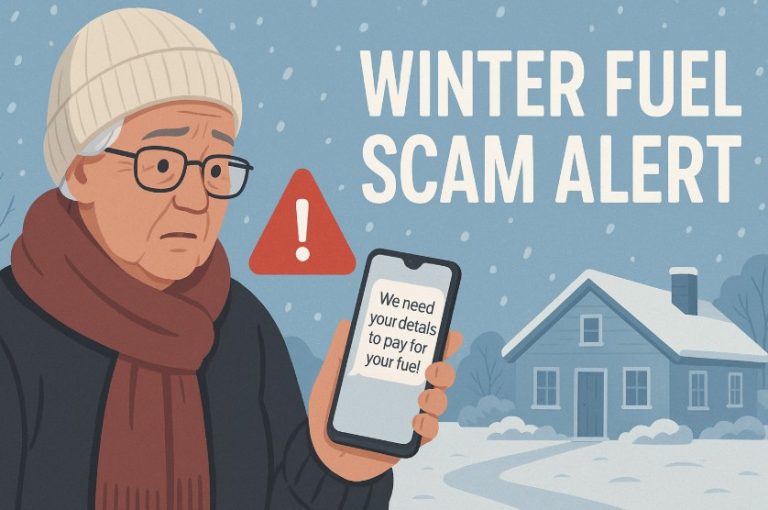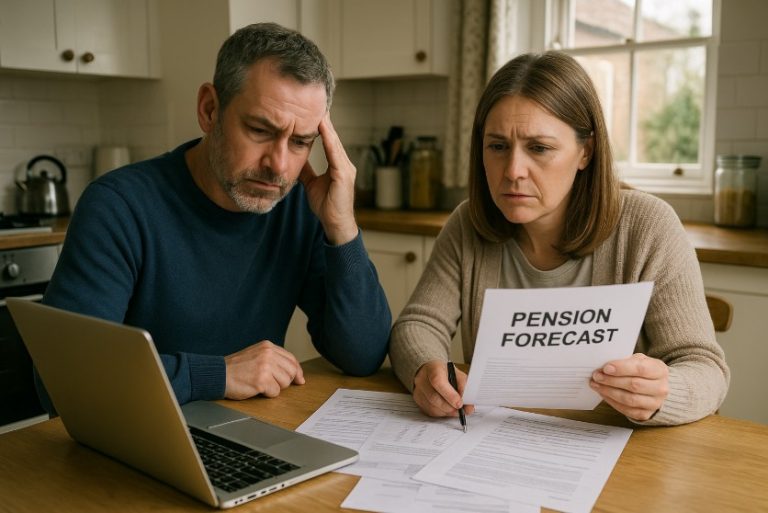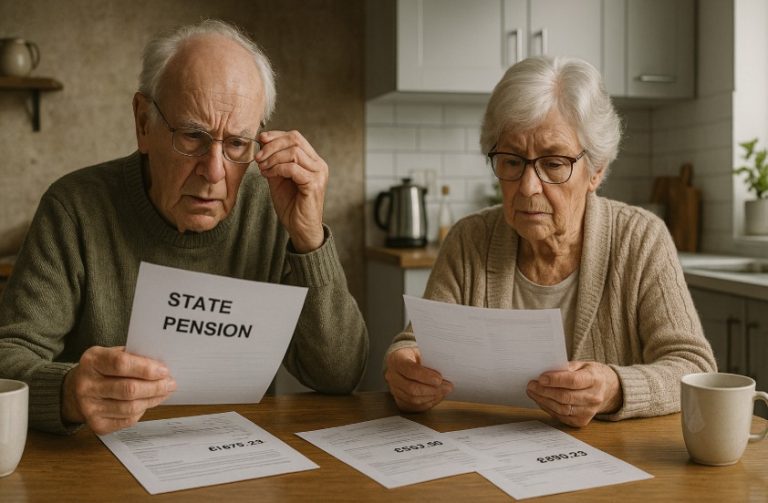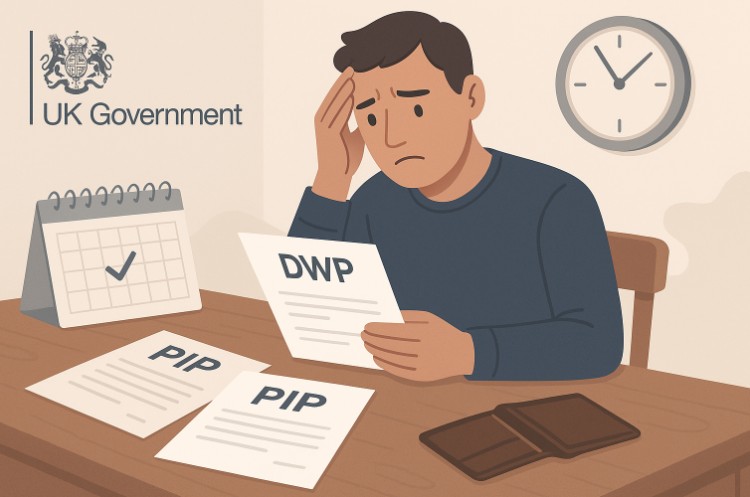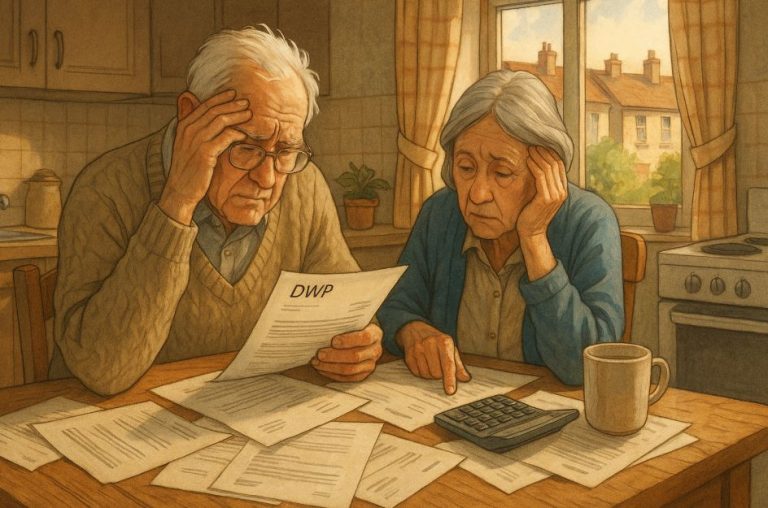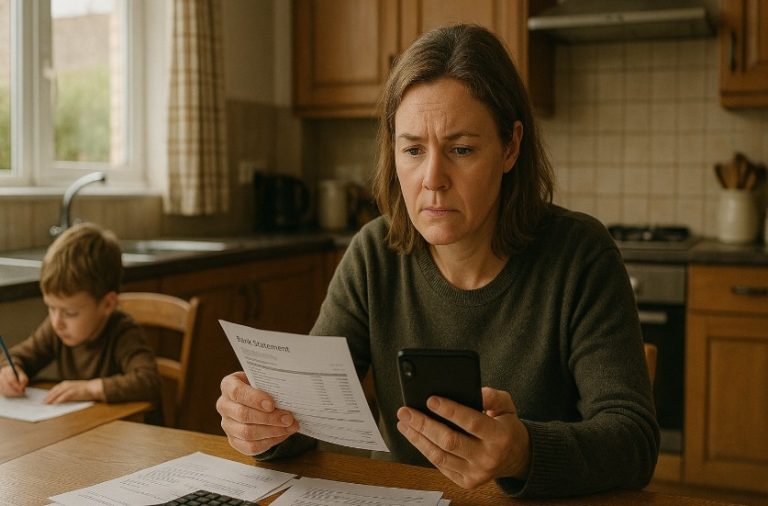Child Benefit continues to be one of the most important financial support systems for families in the UK.
In 2025, parents and guardians may still be unsure about how many children they can claim for, especially in light of other benefit limits.
In this guide, we explore the Child Benefit rules, eligibility criteria, income implications, and whether there is a limit to how many children you can claim for.
What is Child Benefit and Who is Eligible in 2025?
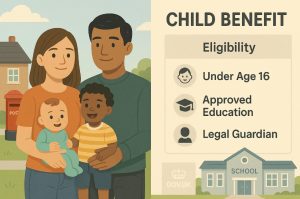
Child Benefit is a financial support payment provided to individuals who are responsible for raising a child. In 2025, the rules remain clear on who qualifies for this benefit.
You may be eligible if you are responsible for a child who is under 16 or under 20 if they remain in approved education or training.
Responsibility is usually determined if you live with the child or if you financially contribute at least the equivalent of the Child Benefit allowance in food, clothing or other forms of support.
Biological parents, adoptive parents, step-parents, guardians, and even relatives or friends looking after a child under informal arrangements may be eligible.
Only one person can claim Child Benefit for a child at any given time. In cases of dispute, HM Revenue and Customs (HMRC) will make the final decision based on who has primary care responsibilities.
Child Benefit also offers additional advantages:
- National Insurance credits that help protect your State Pension eligibility if your child is under 12 and you’re not working
- An automatic National Insurance number for your child, typically sent out before their 16th birthday
Even if you choose not to receive payments due to income levels, it is still advisable to submit a claim to receive the other associated benefits.
Is There a Limit to the Number of Children You Can Claim Child Benefit For?
There is no restriction on the number of children you can claim Child Benefit for. Regardless of how many children live in your household, you can make a claim for each one of them individually.
This differentiates Child Benefit from other benefits such as Universal Credit, which are subject to the two-child limit rule. Child Benefit stands out as an uncapped benefit. For large families, this ensures continued support per eligible child, irrespective of the household size.
Although the number of claims is not restricted, Child Benefit can contribute to the benefit cap which may affect the total benefits a household receives.
While the Child Benefit itself is still paid in full, other benefits may be reduced if your total benefit entitlement surpasses the government cap.
How Much is Child Benefit Per Child in 2025?
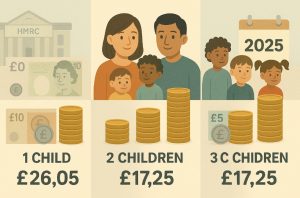
In 2025, the UK Government continues to support families through a two-tiered Child Benefit payment system. The amount you receive depends on whether the child is your eldest (or only child) or an additional child.
These rates are fixed and apply regardless of your income level, though the High Income Child Benefit Charge (HICBC) may reduce the financial benefit if your earnings exceed the threshold.
Weekly Child Benefit Rates for 2025
| Child Category | Amount Per Week |
| Eldest or only child | £26.05 |
| Each additional child | £17.25 |
These amounts are paid into your designated bank account either every four weeks or weekly, depending on your eligibility and preference. Weekly payments are typically reserved for single parents or claimants receiving certain other income-related benefits, such as Universal Credit.
Example Breakdown for Families
To better understand what this means in practice, here’s an example of how much you could receive based on the number of children you claim for:
| Number of Children | Weekly Amount | Monthly Estimate (4 weeks) |
| 1 Child | £26.05 | £104.20 |
| 2 Children | £43.30 | £173.20 |
| 3 Children | £60.55 | £242.20 |
| 4 Children | £77.80 | £311.20 |
These payments are non-taxable, and you receive them regardless of employment status or existing income levels.
However, if you or your partner earns above £60,000, you might have to repay some or all of the amount via the HICBC, which is handled separately through the Self Assessment tax return.
Important Notes
- Only one person can receive Child Benefit for each child, even in shared custody situations.
- If you have children from a previous relationship or are part of a blended family, payments are calculated based on the number of children per household, not per biological parent.
- If you live with a partner who also claims Child Benefit, you cannot both receive the higher rate for an eldest child.
It’s also essential to monitor your household income to determine if you may be affected by the repayment threshold.
Even if you choose to stop receiving payments due to this, you should still make a formal claim in order to secure National Insurance credits and ensure your child automatically receives a National Insurance number when they reach 16.
What Happens if Your Income Exceeds the Threshold?
When either you or your partner earns more than £60,000 in adjusted net income, you may become liable for the High Income Child Benefit Charge (HICBC).
Adjusted net income includes all taxable income such as salary, rental income, savings interest, and dividends, minus specific deductions like Gift Aid.
If your income is between £60,000 and £80,000, you will have to repay a portion of your Child Benefit. If it exceeds £80,000, the charge typically equals the full benefit amount received, effectively cancelling out the financial gain.
You still retain your entitlement to National Insurance credits and your child still receives their automatic National Insurance number. You can also choose to opt out of receiving payments to avoid the tax charge, while still submitting a claim to retain the additional benefits.
The person with the higher adjusted net income in a couple is responsible for paying the HICBC. To do this, they must register for Self Assessment and complete a tax return every year.
Can You Claim Child Benefit if You Live with Someone Else’s Children?

It is possible to claim Child Benefit for children who are not your biological or adopted children, as long as you are primarily responsible for them.
This applies to:
- Stepchildren
- Grandchildren
- Relatives’ children under informal care arrangements
Foster parents can receive Child Benefit only if the local authority does not cover the child’s accommodation or maintenance costs. For adoptive parents, entitlement begins as soon as the child starts living with you, not when the adoption is legally finalised.
If two people both claim for the same child, HMRC will assess who is most responsible based on living arrangements and financial support. Only one person can receive the benefit for each child at any time.
How Do You Make a Child Benefit Claim?
Claiming Child Benefit in 2025 remains a straightforward process, but it’s important to follow the correct steps to avoid delays and ensure your eligibility.
Whether you’re making a claim for your first child or adding another to an existing claim, the process is relatively similar with a few key differences.
Steps to Claim Child Benefit
- Register the Birth of Your Child
- Before claiming, you must register your child’s birth with your local authority. This provides the necessary documentation to verify the child’s identity and your relationship or responsibility.
- Complete the CH2 Claim Form
- For a first claim, you’ll need to fill out form CH2 (Child Benefit Claim Form), available online via GOV.UK or as a downloadable PDF.
- You must provide personal details, your child’s information, and your National Insurance number.
- If claiming for more than two children, use the additional sheet provided with the form.
- Provide the Required Documents
- If it’s your first claim, you’ll need to send the original birth certificate (or adoption certificate) of your child. Copies are not accepted.
- If you’re claiming for a child born outside the UK, additional documentation such as immigration status or right to reside proof may be required.
- Submit the Application
- Post the completed form and supporting documents to the Child Benefit Office.
- Address: Child Benefit Office, HM Revenue and Customs, BX9 1AS
- Wait for Confirmation
- Processing times vary. For a first child, it can take between 6 to 12 weeks. For additional children, it may take only 2 to 4 weeks if your details are already on file.
Backdating and Retroactive Claims
Child Benefit claims can be backdated up to three months from the date HMRC receives your application, provided you were eligible during that time. This is particularly important if you were unaware of the benefit or faced delays registering your child.
Digital and Phone Options
While the initial claim for your first child must be submitted by post, claims for additional children can sometimes be made by phone or online, depending on your circumstances. Always check the latest guidelines on GOV.UK.
Claiming Without Receiving Payments
If your income exceeds the High Income Child Benefit Charge threshold and you do not want to deal with the repayment process, you can choose to opt out of receiving payments. However, you should still complete the claim form to ensure you:
- Get National Insurance credits
- Automatically register your child for a National Insurance number at age 16
Tips for a Smooth Application
- Use the correct name format on forms to avoid verification issues.
- Always report any changes in family circumstances to HMRC, such as moving house, changes in custody, or a new partner moving in.
- Keep a copy of your completed claim form and tracking number if sending documents by recorded post.
Does Child Benefit Affect Other UK Benefits or Tax Credits?
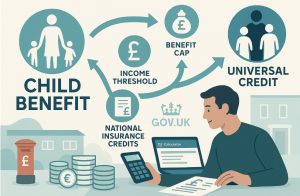
Child Benefit itself is not means-tested and does not directly affect your eligibility for most other benefits. However, it does count towards the overall benefit cap calculation.
If your combined benefit income exceeds the cap, your other benefits (such as Housing Benefit or Universal Credit) might be reduced.
In addition, Child Benefit plays an important role in protecting your future entitlements. Parents who are not working or earning below the National Insurance threshold will receive credits that contribute to their State Pension.
These credits are automatically applied when you claim Child Benefit and your child is under 12.
If you do not need these credits, they can be transferred to a spouse or partner. Alternatively, another family member who helps care for your child may be eligible for Specified Adult Childcare credits.
What Are the Most Common Mistakes When Claiming Child Benefit?
Claimants sometimes make errors that lead to overpayments, underpayments, or delays.
Some of the most frequent mistakes include:
- Failing to inform HMRC when a child turns 16 and leaves education or training
- Both parents or carers claiming for the same child without an agreement
- Forgetting to notify HMRC of changes in income, especially if it crosses the HICBC threshold
- Not updating address or bank account details after moving or changing banks
If you receive too much Child Benefit, HMRC will request repayment. It’s essential to keep your circumstances up to date to avoid unexpected charges.
Final Thoughts: What Should You Know About Claiming Child Benefit in 2025?
In 2025, UK families can still claim Child Benefit for every eligible child, without any limit on the number of children. Whether you have one child or five, this support remains available, though income levels may affect what you keep.
Understanding the rules around eligibility, payment rates, and the impact of income ensures families get the most out of this valuable benefit. Always keep your details updated with HMRC and consider claiming even if you opt out of payments, just for the National Insurance credits.
FAQs About Claiming Child Benefit for Multiple Children
Can two people claim Child Benefit for the same child?
No. Only one person can receive Child Benefit for a child. HMRC will decide who receives it if there’s a dispute.
Can I claim Child Benefit if I live abroad?
In some cases, yes. If you move to certain countries or are a Crown servant, you may still qualify.
What if my child starts work or claims benefits?
You’ll stop receiving Child Benefit if your child begins full-time work (24+ hours/week) or starts receiving certain benefits.
Can I get Child Benefit for adopted or foster children?
Yes. You can claim for adopted children immediately. Foster carers may claim unless the local authority contributes financially.
Do I need to repay Child Benefit if I earn too much?
Yes, if you or your partner earns over £60,000, you may need to repay some or all via the High Income Child Benefit Charge.
How long does it take to receive Child Benefit after applying?
It usually takes around 3–12 weeks depending on whether it’s your first claim or an additional child.
Can I change who receives Child Benefit?
Yes. If circumstances change (e.g., child moves to live with another parent), you can transfer the claim through HMRC.
Related Articles:

